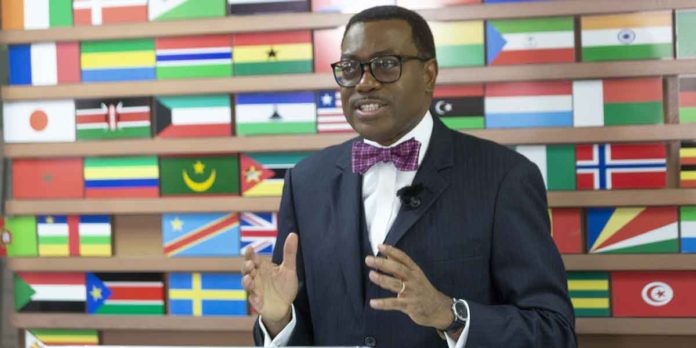President of the African Development Bank, Akinwumi Adesina, has emphasised that Africa needs more climate support funds to address issues of climate change on the continent as nine out of the 10 most vulnerable countries to climate change are in Africa.
According to him, with the annual climate financing gap at around US$110billion, adaptation to climate change cannot be implemented in its totality unless there is a paradigm shift to funding.
He stated further that for Africa to meet its climate actions obligations under the Paris Agreement, and be able to do climate financing, it needs to get between US$1.3trillion to US$1.6trillion by 2030, bringing an average of US$127billion a year in climate finance; and yet Africa gets only US$18billion, leaving a balance of US$110billion, hence, the importance for developed countries to pay up the financing gap.
“So, putting all these together, Africa is choking from climate change; but again, Africa is underfunded with the finance it needs to tackle its climate change, getting only three percent of the total global climate change finance.
“This is highly disproportionate to the needs Africa has. Today, Africa is losing seven to US$15billion of its productivity a year because of climate change. If actions are not taken rapidly, that will draw to US$50billion a year by 2030,” he said.
He mentioned that a lot of the impact of climate change in Africa is seen in areas of increased levels of drought, flood and heat, affecting crops and livestock production, which will again affect the livelihoods of farmers while threatening food security.
Africa Climate Action Window
Furthermore, he stated that AfDB has created a downstream facility – the Africa Development Fund (ADF) – to mobilise US$13billion for the Africa Climate Action Window, aimed at supporting 37 countries in Africa to tackle climate action.
“This Climate Action Window is very critical for low-income countries in Africa and transition states. This climate window will provide 20 million farmers with access to climate-resilient agriculture technologies. It will also support 20 million farmers and pastoralists to gain access to weather index insurance scores for insuring their livelihoods.
“This will again provide 18 million people with access to water and sanitation, and also provide 840 billion cubic metres of water because water will be critical for the population,” he said.
The president concluded that this facility will also provide about 10 million people with access to clean energy.
Considering all these important interventions and initiatives to tackle climate change, Mr. Adesina reiterated that Africa needs more to tackle climate change; hence, the need to move from words to commitments, commitments to actions, and actions to delivery of money on the table for Africa to deliver on climate change.
He made these remarks during a virtual pre-COP27 press conference and global launch of the ‘State and Trends in Africa 2022 (STA22)’.
On his part, CEO of the Global Centre Adaptation (GCA), Prof. Patrick Verkooijen, stated that Africa is on the frontline of a climate emergency it did not create. He added that Africa’s 1.4 billion people, which is about 17 percent of the global population, contribute almost nothing to global warming, and are responsible for less than three percent of the world’s total greenhouse-gas emissions, yet is very vulnerable to its impacts; hence, the need to pay more attention to investments which mitigate the impact.
“The bottom line is this: if COP27 is to succeed, it needs to ensure that adaptation finance is finally flowing at full scale and pace to Africa. It is clear now that we can no longer afford to wait; adaptation must start happening on a far greater scale with a paradigm shift in investment,” he said.
State and Trends in Adaptation, Africa Report 2022
The State and Trends in Adaptation in Africa. Report 2022 (STA22) completes the most comprehensive overview of present and projected climate risks and adaptation solutions in Africa. STA22, the third in GCA’s series of annual flagship reports, maintains the dedicated focus on Africa from last year and expands its analysis.
The report provides a deep dive into the economics and finance of climate change adaptation, with an additional focus on sectors, cross-sectoral themes and country profiles. It sets out the potential costs and benefits of adaptation interventions in Africa, and includes a new analysis of climate change impact on the private sector.








